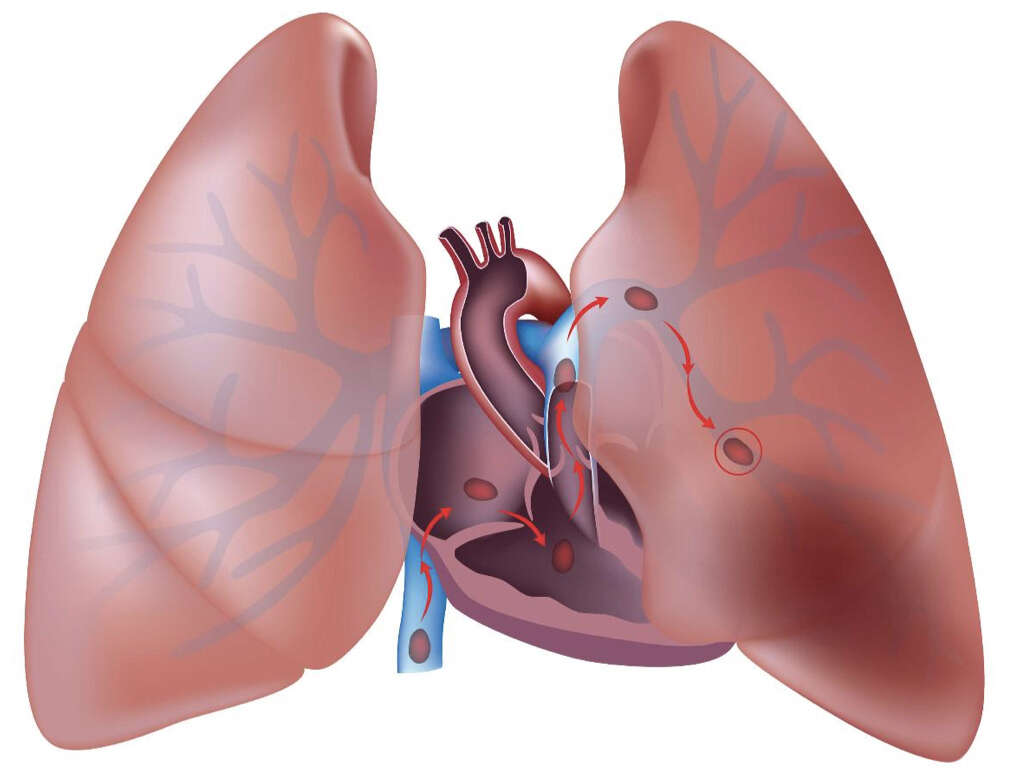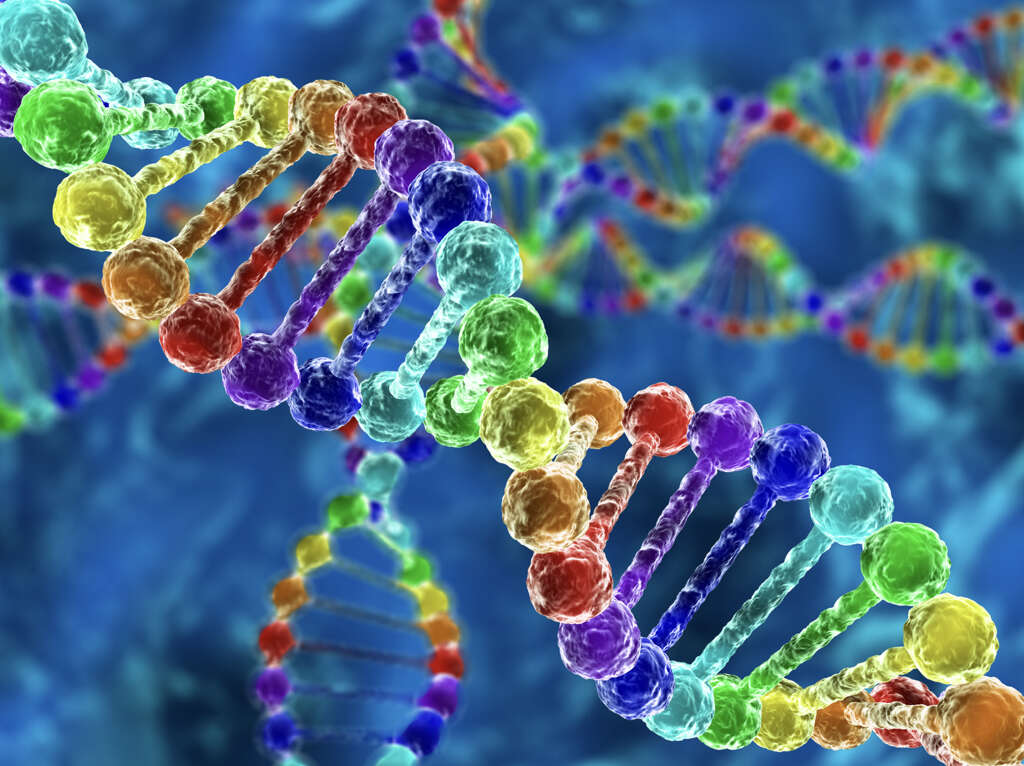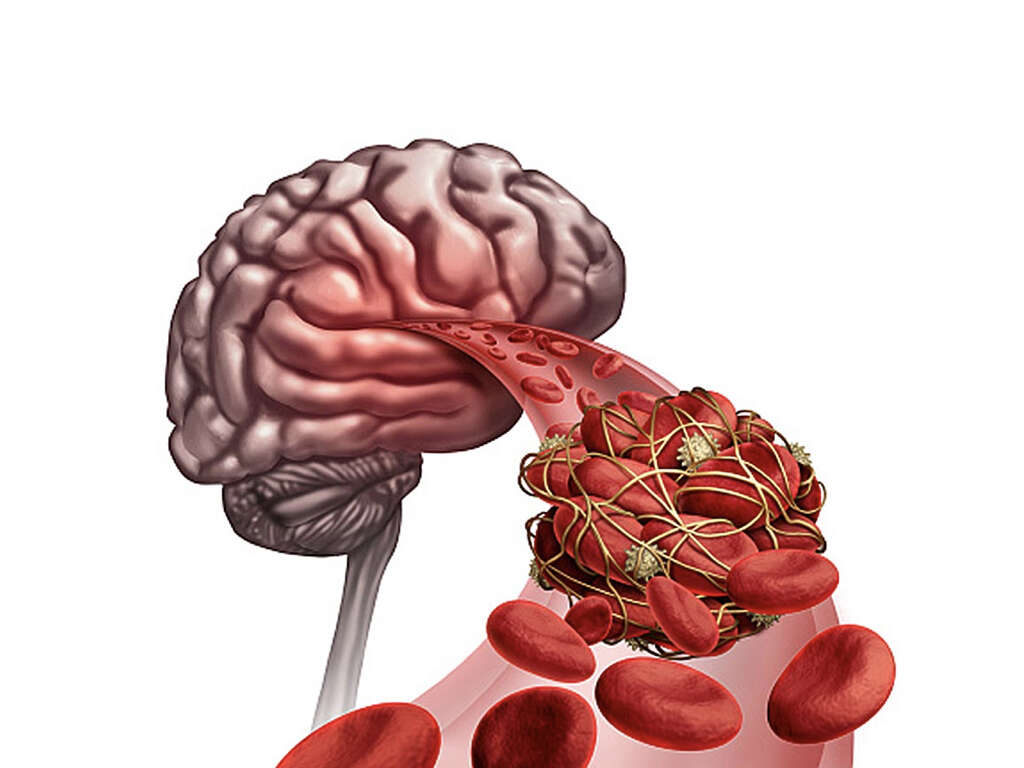Causes of Pulmonary Embolism
Our hearts are always pumping; ensuring that oxygen is carried throughout the body. Oxygen is so essential to us that we will die very quickly without it. This means that the flow of blood should not be impeded, and this means keeping our blood vessels clear of obstructions.
Some people, however, can experience blockages in the flow of blood. This can be very dangerous and they can also sometimes come on very suddenly. One such example is a pulmonary embolism, and it is something that should be treated as an immediate medical emergency. There are various causes, and it can be avoided in many cases.

1. Pulmonary Embolism
The pulmonary arteries allow our blood to travel to the lungs from the heart. Here, the blood can absorb oxygen before then returning to the heart from where it is pumped to the rest of the body. It is essential that the pulmonary arteries are kept clear to allow the flow of the blood to the lungs.
A pulmonary embolism is a condition where one of the patient’s pulmonary arteries is blocked. This will usually, but not always, be caused by a clot that has become dislodged from elsewhere in the body and travelled to the pulmonary artery. It is a very dangerous condition and the patient will need emergency medical assistance.

2. Lifestyle Factors
Perhaps the most common cause of pulmonary embolisms is unhealthy lifestyle choices. A poor diet and a lack of exercise are more likely to lead to obesity. The wrong diet will also increase the likelihood of clots developing in the cardiovascular system. Other lifestyle choices, such as smoking, can also increase the risk of a pulmonary embolism.
This makes it a good idea to try and live as healthily as you can. You don’t necessarily have to adhere to a strict regime. A balanced diet of fresh food and a reasonable amount of activity can go a very long way. This will help keep you safe from other serious health conditions as well as a pulmonary embolism.

3. Surgery
Another common cause of a pulmonary embolism is surgery. Blood clots can form from a person being immobilized and a patient who is in surgery for a long time is just that: immobile. Also, if they require a lengthy recovery in bed, their risk of blood clots increases even more. Compression garments and a device called intermittent pneumatic compression are used for such patients to avoid blood clots from forming.
Medication is often provided to the patient after surgery to help prevent the chances of blood clots developing. Regular check-ups should also be provided to help ensure that all is going well.

4. Blood Disorders
Some people are born with disorders that can cause them all sorts of problems in life. Some are quite harmless, whereas others can be very dangerous, one example being blood clotting disorders. Some people are simply born with blood that is more likely to clot, and this can cause a very real threat to their lives.
A patient’s blood can also become more likely to clot if the patient has other medical conditions like diabetes. Depending on the condition, it may be necessary for them to take medication to prevent clotting. At the same time, however, it is important that their blood is still able to clot when needed.

5. Genetics
If your family has a history of having certain medical conditions, then you also are more likely to have those same conditions. This does not apply to all medical conditions and it also does not mean you will necessarily get a condition that is hereditary. There is still a higher risk, however, and this applies to pulmonary embolisms.
If a member of your family has a history of blood clots then you should take extra precautions to keep safe. Genetics are also more likely to make people predisposed to other conditions such as heart failure. Regular checkups are recommended, as is living as healthy a lifestyle as you can.

6. Cancer
Cancer is a horrible condition that can cause some unexpected symptoms, many of them very unpleasant. There are numerous different types of cancer and each can cause different symptoms. Different types also require different treatments. Some types are a death sentence, while other types can be cured.
One potential symptom of particular types of cancer is an increased likelihood of your blood clotting. What’s more is that certain cancer treatments can also make it more likely that your blood will clot. Regardless, it is always a good idea to have regular check-ups if you have had cancer or any other serious medical condition.

7. Long Journeys
Every now and then we might need to need to go on a long journey to elsewhere. This will often mean spending a lot of time sitting in a seat on a bus, car, or plane. This can also lead to blood clots as blood does not flow through the legs as well as it otherwise would do. This means that people that travel a lot are more prone to pulmonary embolisms.
If you are going on a long flight. Make sure to stand every now and then and try and walk up and down the aisle to get the blood flowing in your legs. Try and make the most of any breaks you get on bus journeys, and ask the driver to stop occasionally when you are traveling by car.

8. Immobility
Some people might have to spend long periods of time in bed, or be immobile in some other way. This is often the case after serious injury and/or surgery, or other serious medical conditions. While rest is important for recovery, it can also result in some potentially dangerous conditions.
When the patient is inactive, the flow of blood in their legs will slow down and this can lead to clots developing. Nurses will often need to move patients and give them massages to try and keep the circulation moving to prevent blood clots developing. It is also important that infirm people are helped out of bed to exercise as much as they reasonably can.

9. Pregnancy
Pregnancy is a very special time, but it is also one where a pregnant mother will need to be extra careful. Injury to the baby, through trauma or through other means, can cause severe problems for the baby’s development. Some medical conditions can also present a very real threat to their well-being.
As the baby grows in the womb, so the mother’s abdomen area will begin to expand causing pressure to be exerted on the vessels that bring blood to legs. Also, in order to prevent excessive bleeding after birth, the body will make it so that the blood clots more easily. This can, in turn, lead to blood clots, and this can cause a pulmonary embolism in some cases.

10. Hormone Replacement Therapy
The menopause is the period in a woman’s life that signals the end of their reproductive days. This sometimes comes with some very unwelcome symptoms, but hormone replacement therapy can help to lessen the impact of these symptoms. The treatment can also help to prolong a woman’s sexually active days.
Hormone replacement therapy involves estrogen supplements that help to encourage the patient’s sexual organs to carry on as normal. It can be very effective in some women, and it can also come with some other unwanted side-effects. One of which is the increased chances of clotting and, therefore, pulmonary embolisms.










